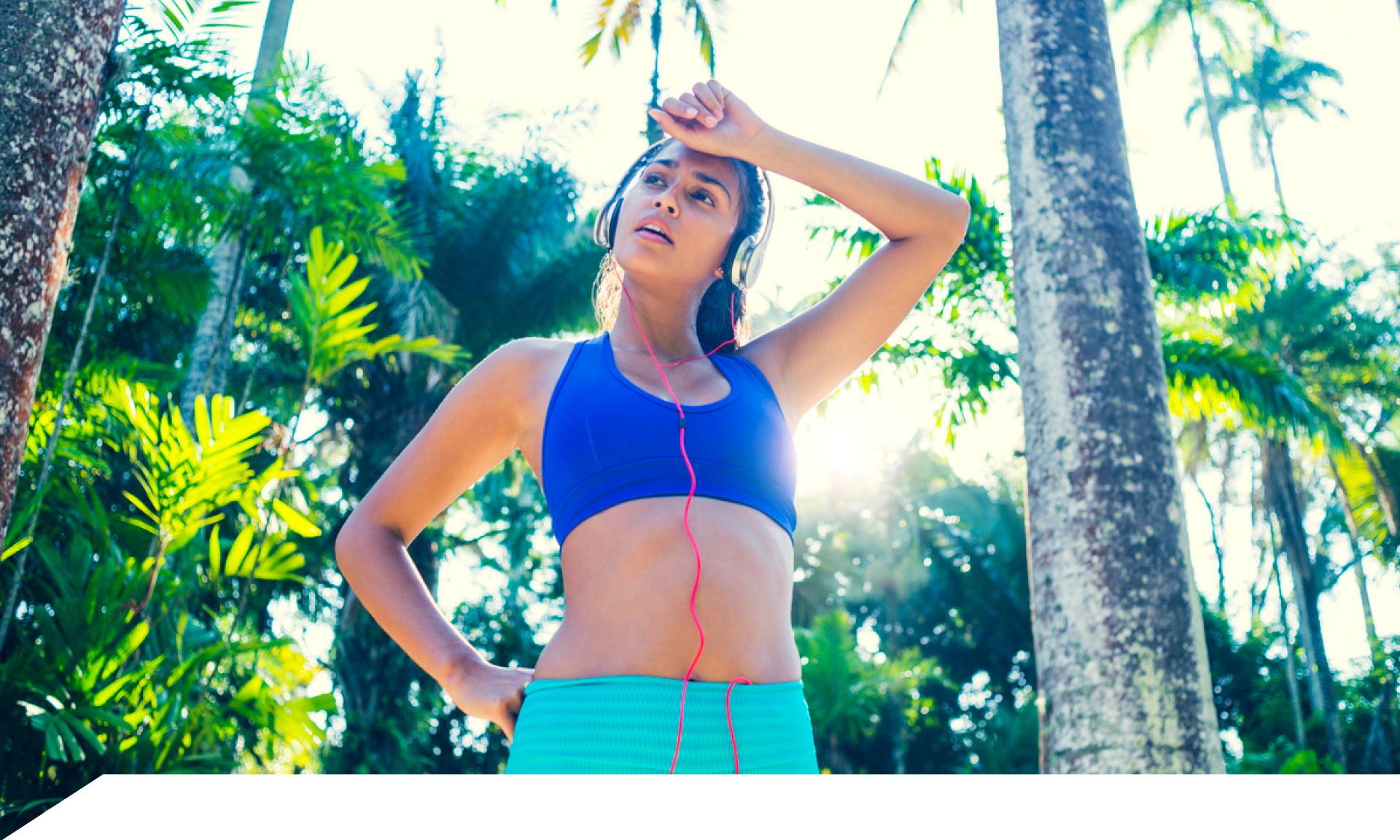Warm weather is finally upon us. Which means spending more time out in the sun. And as we get closer to summer and higher temps, it’s time to be more cautious about avoiding extreme heat — which can cause serious health issues. But just how hot is *too* hot to be outside? We asked family physician Beth Oller, MD — plus her tips on how to stay safe.
How hot does it have to be before it’s safer to be inside?
Oller points to the heat index for this one: Temps between 90 and 105 degrees Fahrenheit are considered “extreme caution,” and anything above falls under the “danger” and “extreme danger” categories.
“When it gets to be over 100 degrees, anyone is going to have ill effects from heat before very long,” she says. That’s when you should head indoors — especially in the afternoon when it’s typically the hottest part of the day. That’s especially important for people who are more vulnerable to heat — such as “those with heart or lung issues, older adults, pregnant persons and newborns,” Oller explains.
When you’re outside in high temps, you can risk getting heat exhaustion, which can present as dizziness, a headache, nausea, weakness, muscle cramps, and fatigue, explains Oller. The best way to treat it is to lower someone’s body temp (tips on that below). If that’s not treated, you could have heatstroke: “Its symptoms include confusion, altered speech, no sweating, rapid heart rate, nausea or vomiting, and [loss of] consciousness,” says Oller — and that could be fatal if it’s not treated quickly. Call 911 ASAP if you think someone’s suffering from a heat stroke.
How can I stay safe outside in hot weather?
Sometimes, you can’t always access a cold, air-conditioned space. Oller says to “use a spray bottle or damp towel to help stay cool, stay in shady places, and avoid strenuous activity,” which can help keep your body temperature low. Hydration is also key. And if you know you’ll be outside in advance, try wearing…
Lightweight, loose-fitting clothing
A wide-brimmed hat
Sunglasses
These things will help you avoid sunburn, which “affects the body’s ability to cool itself,” Oller says.
Ask an Expert is for informational purposes only, does not constitute medical advice, and is not a substitute for professional medical advice, diagnosis, or treatment. Always seek the advice of your physician, mental-health professional, or other qualified health provider with any questions you may have regarding a medical condition. By submitting a question, you are agreeing to let theSkimm use it—in part or in full—and we may edit its answer for length and/or clarity.
Live Smarter
Sign up for the Daily Skimm email newsletter. Delivered to your inbox every morning and prepares you for your day in minutes.
